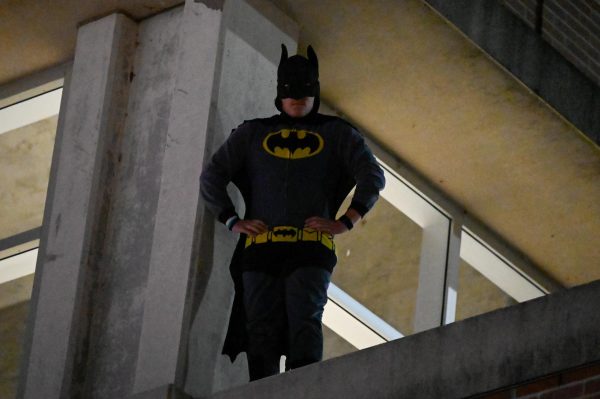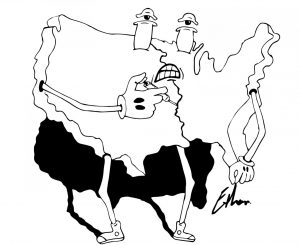UWO transparency needs addressing
UW Oshkosh is transparent in most areas like academics, but scandals that have emerged raise doubt.
One well-known scandal is the UWO Foundation lawsuit involving former Chancellor Richards Wells and former Vice Chancellor Thomas Sonnleitner.
The UWO Foundation claimed bankruptcy in 2016 after $11 million dollars of University funding was illegally transferred.
The Foundation provides funding for students, and this bankruptcy could have the potential to affect scholarships.
Two more recent scandals include the firings of former UWO Vice Chancellor Brandon Miller and UWO men’s club volleyball coach Brian Schaefer in 2017.
These firings were both quiet until statements were brought forward in the past year. Although these firings may not affect every student, students should know the reasoning behind faculty, staff and administrations terminations.
UWO continuously states that it is transparent with their students about what goes on at the University.
A 2017 Milwaukee Journal Sentinel article by Karen Herzog states that UW leaders have directed all UW Foundations’ “books and records must be ‘maintained in a professional, controlled and transparent manner and be available to the university as needed for oversight and monitoring.’”
The Oshkosh Student Association has a page on their website dedicated to transparency and accountability that states “Transparency, accountability and open student government is the heart of building trust among student leaders, administrators and other key decision makers at UW Oshkosh.”
An article written by former Chancellor Wells in 2013 states, “There is a need and a way for UW System and its institutions to be more systematically and proactively transparent about our fund balances.”
These texts show how the University and the UW system should focus on transparency.
UWO freshman Anna Gerstner said although the University informs students on a lot of topics, they don’t inform us as much as they should.
“I’m kind of in the middle because I know they tell us a lot of stuff,” Gerstner said. “But there’s a lot of stuff that goes on underground, like higher up in places with chancellors, that they don’t let us know about.”
UWO senior Stacey Packer said the University isn’t transparent based on what she has seen online about the school’s financial situations.
“I don’t think they’re very transparent on our debt and their budget cuts,” Packer said. “We don’t find out about that and it affects us because it cuts our classes.”
On the other hand, UWO freshman Maggie Herzog said the University does a good job of
keeping things clear with the student body.
“I think students should be pretty much aware of anything that involves them since we are students here,” Herzog said. “So I think they would want us to be informed as well.”
Gerstner said she thinks there are instances where it is acceptable to not be informed.
“If it’s not for us to know about or for us to start spreading rumors about around the school to make other students uncomfortable and teachers uncomfortable, then they’re looking at our best interest,” Gerstner said.
Herzog said if there is a possibility for it to have an effect, it should be vocalized to everyone without giving all the details.
“I feel like if they are keeping some things secret, then there might be good reasons,” Herzog said. “But also they could just say if it affects the student body.”
Wanting to know about only issues that affect students is a good thing, but knowing about anything that could affect the school’s reputation, finances or staff is important as well.
Packer said the University should relay information to students unless a situation is still being debated and researched.
“I think if it’s just in the works, keep it secret until you have more details, but otherwise they should be pretty honest,” Packer said. “We’re all trying to graduate and we’re paying a lot of money to be here.”
Although there are agreements and disagreements on whether the University is transparent, there are some things it can do to improve on adhering to that quality.
Gerstner said having a meeting or gathering for students would be a better choice for announcing information.
“We should have meetings with small groups of people that are actually interested in this stuff,” Gerstner said. “Or maybe by having small community meetings once a month.”
Overall, we understand and hope that the University tries to be transparent with the students. However, hidden issues that could affect the reputation of the school or the students may break that trust.









